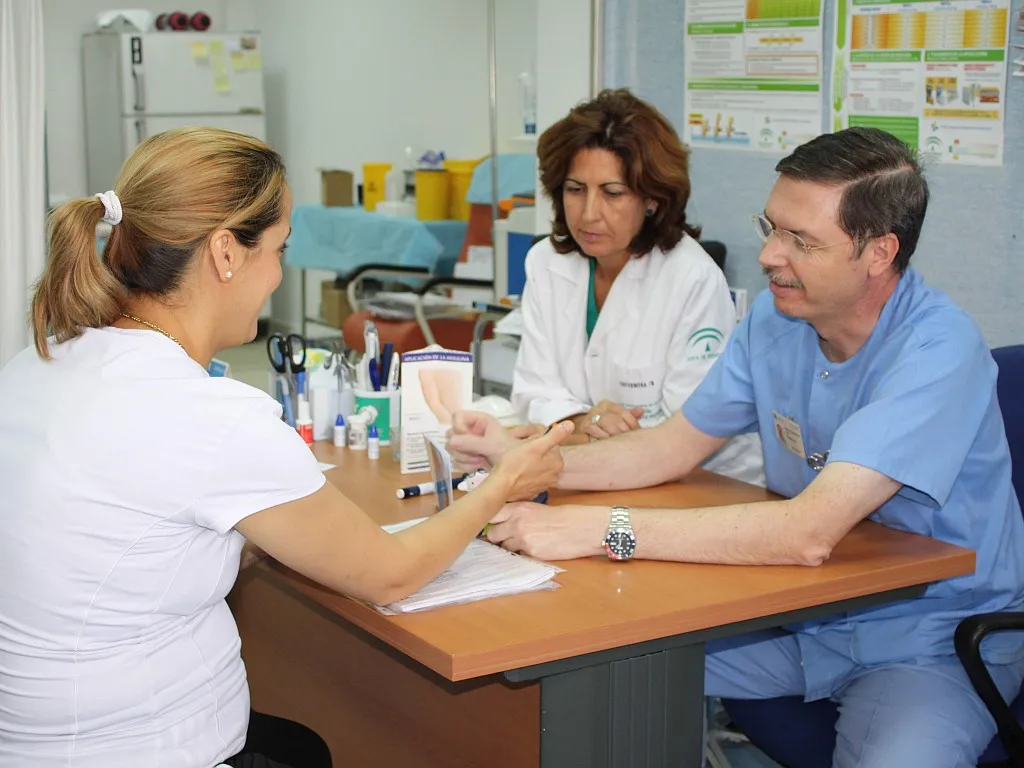Today, May 12, the International Nursing Day is celebrated worldwide.On the occasion of this Sanofi celebration he wanted to know what is the perception of nursing today and how his role is seen in the future.To know that has launched a survey of patients and relatives who have had contact with nursing in recent months with the aim of understanding first -hand, how they have perceived their service and what has been the reason for interaction with this group.
The report offers an overall vision on the reputation of nurses developed by Reputation Institute;The information is based on data collected in February 2015 in 13 countries.The results come from at least 100 surveyed by country.
In the specific case of diabetes the main holder or conclusion that the commented study of nursing relates to diabetes education.In fact, respondents consider that within health nursing is the most qualified personnel to carry out such a key task in diabetes as education.
The reputation of nursing
In general, the assessment made of the nursing group is very positive.According to the aforementioned study, more than 60% of respondents see nursing as a group that provides them with care, helps in a friendly and close way.The nursing group has a good reputation.In Spain in concrete it is on the average with respect to the rest of the world.
The people who value this group are the most are those who are over 65 and have a lower level of studies.Reputation levels tend to vary depending on the demographic group.Younger people tended to be more critical of nurses, while scores tended to progressively improve with age.
It is also more demanding with this group when it comes to a relative than when valued for personal issues.Also among the most valued aspects are that they treat you well, be friendly and know how to solve the doubts.And finally one of the most obvious conclusions of the good reputation that nursing has in our country and in the world in general is that more than 75% of respondents would recommend their nurse.
Finally, the reputation of the nurses varied a bit depending on the type of condition suffered by the people interacting with them.People with arthritis, asthma, lung diseases and diabetes were the ones that most valued nurses, while people with infectious diseases (the main reason to contact a nurse) gave significantly lower scores.
Nursing ability to address patients' concerns
The greatest concerns of respondents after the diagnosis of a disease are to have the correct treatment, advice on how to face their disease and ensure that they have access to medications.According to the nursing survey, it covers these needs.In fact, 85% of respondents follow the advice given by their nurse.
What is and should be the role of nursing
Despite the good levels of trust that nurses transmits, practically half are not sure if they would really go to them to ask for advice since they consider that they do not have all the information.Society expects the future role of nursing to go further and play a role in the education and prevention of diseases, such as in the case of diabetes.
Despite obtaining a lower score in this aspect, the availability of nurses to respond advice requests is also one of the main drivers of reputation.When asking them about the tasks who expect nurses to carry outThe future, respondents believe that in the next five years nurses should not only spend more time treating patients, but also have a role in patients' education in terms of disease prevention.
While there seems to be an agreement between what nurses dedicate most of their time today and what the public wants them to focus on the future, what it highlights is the fact that the public expresses aInterest in a greater role of nurses as educators in the field of health care.


